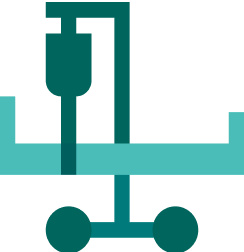


LIVING WELL
LEAVING WELL
This is our archived website. All information correct at the time of publishing.
Welcome to our repository of information on end-of-life matters in Singapore. Kindly note that this is not an exhaustive nor prescriptive list, but a compilation of materials for ease of public access.




Plan and Apply
What to Activate

Credit: Infographic adapted from Agency for Integrated Care
You may also like to visit My Legacy, a government initiative, where you will be able to find relevant information on end-of-life related matters, as well as a secured vault where you can store your wishes and plans (e.g. Advance Care Planning; funeral wishes) and share it with your loved ones via the site.

Since 2013, Both Sides, Now has emphasised public engagement and dialogue on end-of-life matters as a stimulus to build healthy, connected communities that contribute towards living, and leaving well. As part of the research process for this Mengukir Harapan (Carving Hope) edition, the Both Sides, Now creative team collaborated closely with Age Matters and the researchers they worked with to develop culturally competent arts-based approaches to engage the Malay-Muslim community on end-of-life and advanced care planning issues.
This research study engages a participatory community-led design to understand pertinent issues and contexts within the Malay-Muslim community. It was done by analysing interview data of key resource persons and observations during Community Engagement Workshop sessions (akin to focus group discussions) with diverse demographics within the Malay-Muslim community. The study shares themes; individual, structural and contentious issues; as well as archetypes found regarding end-of-life matters from the research, and makes programme recommendations.
Advance Care Planning (ACP) is a national programme that aims to empower Singaporeans to choose how they would like to be cared for. It is the process of planning for one's current and future healthcare. It helps individuals to communicate their values and how these values shape their healthcare preferences, to people important to them and their healthcare team. If the individual is no longer able to make decisions or speak for themselves, the ACP guides the decision-makers to act in their best interest.
Individuals are encouraged to participate in this programme at any stage of their lives. It is not only limited to those who are elderly or at their end-of-life.
Source: AIC Website
An ACP facilitator will take you through a discussion and upload your preferences onto a database linked to the National Electronic Health Record.
At the end of the ACP session, you may identify up to two persons to be your Nominated Healthcare Spokesperson. These Spokespersons are chosen by you to speak on your behalf, should you lose the mental capacity to do so.
The Lasting Power of Attorney is a legal document, which allows a person who is at least 21 years of age ('donor'), to voluntarily appoint one or more persons ('donee(s)') to make decisions and act on his/her behalf if he/she loses mental capacity one day. A donee can be appointed to act in the two broad areas of personal welfare, and property and affairs matters. The LPA is overseen by the Office of the Public Guardian under the Ministry of Social and Family Development.
Source: MSF Website
Find out more about Lasting Power of Attorney.
Read the fatwa on LPA released by MUIS.
An Advance Medical Directive (AMD) is a legal document that you sign in advance to inform the doctor treating you (in the event that you become terminally ill and unconscious) that you do not want any extraordinary life-sustaining treatment to be used to prolong your life. Making an AMD is a voluntary decision. It is entirely up to you whether you wish to make one. In fact, it is a criminal offence for any person to force you to make one against your will. The AMD is overseen by the Registrar of Advance Medical Directives under the Ministry of Health.
Source: MOH Website
Complete a physical copy of the AMD Form
Make an appointment with a doctor to sign-off on the form, alongside a witness. Depending on the doctor’s fees, you can expect to pay for the service subject to prevailing fees.
Submit the form to the Registrar of Advance Medical Directives by post.
Find out more about the Advance Medical Directive.
Read the fatwa on the AMD released by MUIS.
*English version unavailable.
A Central Provident Fund (CPF) nomination provides CPF members with the option to specify who will receive their CPF savings, and how much each nominee should receive, upon their demise. You should make a CPF nomination, if you want to distribute your CPF savings according to your wishes when you pass on. Without a nomination, your CPF savings will be distributed by the Public Trustee’s Office to the legally entitled beneficiaries (who are usually family members and next-of-kin) under the Intestate Succession Act or the Inheritance Certificate (for Muslims).
Source: CPF Website
Visit the Central Provident Fund website for more information.
Read the fatwa on the CPF Nomination scheme issued by MUIS.
A will documents how your loved one would like to distribute their money and possessions (also called their estate) after they have passed on. Upon death, you and your family can apply to the Courts for a Grant of Probate to distribute the estate according to the will. If no will is made, the estate will be distributed according to the Intestate Succession Act or Inheritance Certificate (for Muslims).
For Muslims, the distribution of estate closely follows the Islamic Law on Inheritance, also known as Faraidh law. A will is prepared only to bequest up to 1/3 of your assets to anyone except your lawful heirs. The balance after distribution of the Will should rightfully be distributed according to Faraidh law.
Source: AIC Website
Read more about the Faraidh law.
The Human Organ Transplant Act (HOTA) allows for the kidneys, heart, liver and corneas to be removed, for the purpose of transplantation, in the event of death from any cause.
HOTA covers all Singapore Citizens and Permanent Residents 21 years old and above, who do not have mental disorders, unless they have opted out.
Human Organ Transplant Act
Medical (Therapy, Education and Research) Act (MTERA)
Find out more about HOTA.
Download the HOTA Information Booklet.
Medical (Therapy, Education and Research) Act (MTERA) is an opt-in scheme, where people can pledge their organs or any body parts for the purposes of transplant, education or research after they pass away.

Read the fatwas on human organ transplant and donation released by MUIS.
If you are interested to learn more on MUIS’ decision on this issue, please read this resource.
HOTA
MTERA
Age
21 years old and above
18 years and above
The adult next-of-kin can also pledge the organs of deceased patients of any age for donation.
Organs included
Kidney
Liver
Heart
Cornea
All organs and tissues including skin and bone.
Purpose(s)
Transplant
Transplant and treatment
Education
Research
Nationality
Singapore Citizens and PRs
Any nationality
Religion
Any religion (Muslims were included under HOTA from 1 August 2008)
Any religion (For Muslims, MUIS has issued fatwas stating that the donation of kidney, liver, heart and cornea is permissible.)
Consent
Opt out
People who meet the above criteria will be automatically included under HOTA unless they register their objection.
Opt in
People need to opt in and pledge their organs/tissues for donation under this scheme.
We understand that when death happens, it is emotional and difficult and you might be overwhelmed navigating through the plethora of administrative and legal matters.
Please visit this page for a guide on what are the key next steps when death happens.

A handy checklist to keep if you are suddenly faced with a death of a loved one. Use this as a guide as to what to do and who to call after a loved one passes on.

Accurate as of 24 September 2021
Welcome to our repository of information on care and services relating to end-of-life matters in Singapore. Kindly note this is not meant to be an exhaustive list, but a compilation of materials for ease of public access.
Palliative care aims to relieve suffering and improve quality of life for patients and their family members by caring for the “whole-person” physically, emotionally, psychologically and spiritually. Palliative care seeks to support the patient throughout the treatment process. In Singapore, the term “palliative care” and “hospice care” are used interchangeably.
Palliative care can be provided at home, in nursing homes, hospices, specialist clinics, general and community hospitals, catering to every patient’s needs. Services provided include home care, day care, inpatient care and consultative services.
Source: SHC website
Find out more about Palliative Care and Hospice Care.
List of Palliative Care providers by the Singapore Hospice Council.
Singapore Hospice Council has published several resources to raise awareness about palliative care to the wider public. Further information on end-of-life matters such as grief, bereavement and caregivers’ experiences.
Stories about palliative care published from different perspectives, ranging from patients, caregivers, doctors, nurses, social workers, therapists, and volunteers.
Publications outlining information on where to seek help and get necessary support, upon the loss of a loved one.
A series of booklets for caregivers looking after loved ones receiving palliative care.
Accurate as of 11 May 2023
